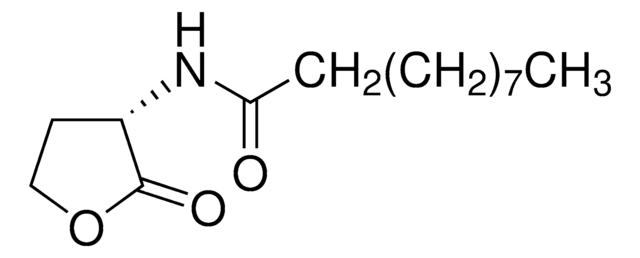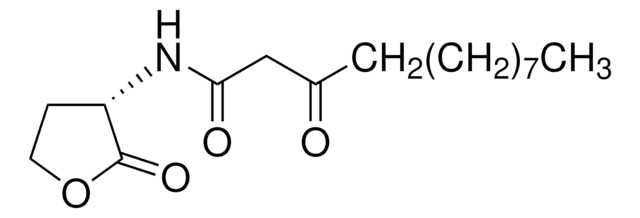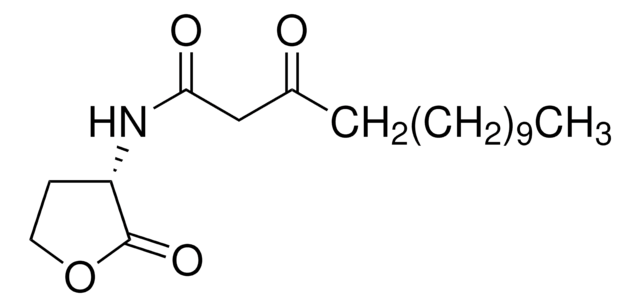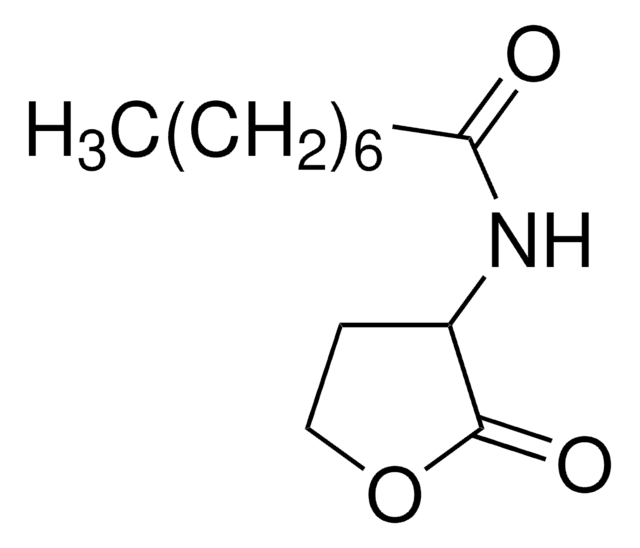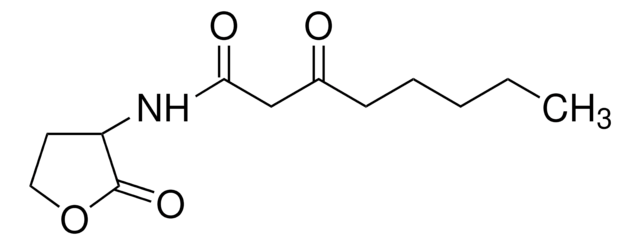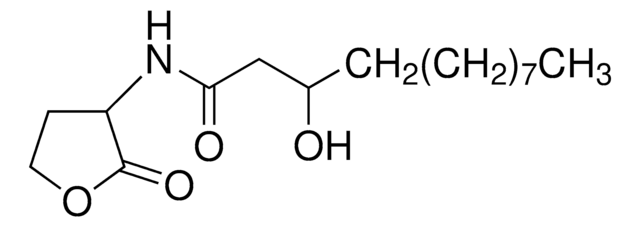68224
N-Dodecanoyl-L-homoserine lactone
≥96% (HPLC), suitable for mass spectrometry (MS)
Synonym(s):
N-Lauroyl-L-homoserine lactone, N-[(3S)-Tetrahydro-2-oxo-3-furanyl]dodecanamide, C12-HSL
About This Item
Recommended Products
product name
N-Dodecanoyl-L-homoserine lactone, ≥96% (HPLC)
assay
≥96% (HPLC)
form
powder or crystals
optical activity
[α]/D -25±5°, c = 0.2 in methanol
technique(s)
mass spectrometry (MS): suitable
color
white to off-white
suitability
conforms to structure for Proton NMR spectrum
storage temp.
−20°C
SMILES string
O=C1OCC[C@@H]1NC(CCCCCCCCCCC)=O
InChI
1S/C16H29NO3/c1-2-3-4-5-6-7-8-9-10-11-15(18)17-14-12-13-20-16(14)19/h14H,2-13H2,1H3,(H,17,18)/t14-/m0/s1
InChI key
WILLZMOKUUPJSL-AWEZNQCLSA-N
Biochem/physiol Actions
hcodes
Hazard Classifications
Aquatic Chronic 4
Storage Class
11 - Combustible Solids
wgk_germany
WGK 3
flash_point_f
Not applicable
flash_point_c
Not applicable
Certificates of Analysis (COA)
Search for Certificates of Analysis (COA) by entering the products Lot/Batch Number. Lot and Batch Numbers can be found on a product’s label following the words ‘Lot’ or ‘Batch’.
Already Own This Product?
Find documentation for the products that you have recently purchased in the Document Library.
Customers Also Viewed
Our team of scientists has experience in all areas of research including Life Science, Material Science, Chemical Synthesis, Chromatography, Analytical and many others.
Contact Technical Service


